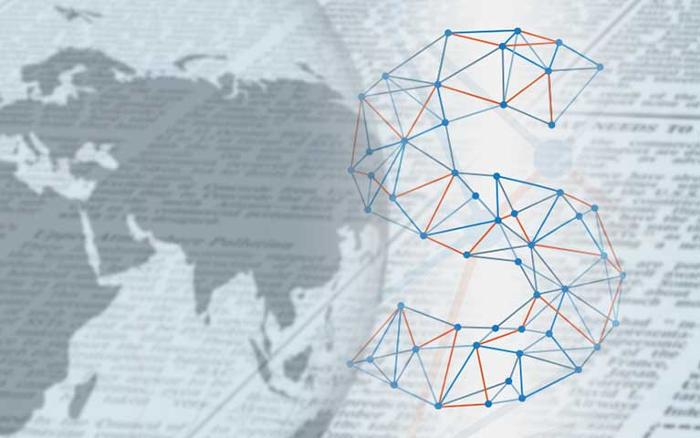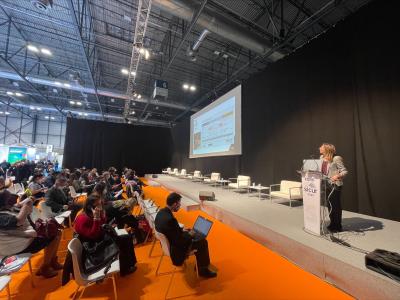

SICUR hosted the presentation of the European call for funding for R&D projects on security
The Horizon Europe Program will spend 1.6 billion euros on civil security between 2021 and 2027
Organised by IFEMA MADRID, the International Security Trade Fair was held on February 22-25 at the Fairgrounds.
SICUR 2022, the International Security Trade Fair held on February 22-25, hosted the presentation of the European call for funding for R&D projects on security, which will spend 1.6 billion euros on this field between 2021 and 2027. In addition, speakers participating at this technical workshop of the fair highlighted the importance of research and innovation to strengthen civil security in society.
During the workshop, organised by the Centre for Industrial Technological Development (CDTI), the strategy and opportunities for funding were presented for 2022 in the calls of the European Program "Civil Security and Society" or Cluster 3, in the European Union's "Horizon Europe" R&D Framework program.
Maite Boyero, Spain's representative on the Cluster 3 program committee, was the first speaker, recalling that the 9th "Horizon Europe" framework program has been underway for a year. "This is a very ambitious program, with a total budget of 95 billion euros between 2021 and 2027, 1.6 billion of which go to the civil security and cybersecurity section". The call for Cluster 3, which opens next June, aims to "look for technologies that allow security agencies face the daily challenges across the board".
As Boyero states, the program has to address the threats and challenges through key strategic orientations and provide solutions to different problems, achieving an economy based on a more competitive security; In addition, it aims to contribute to creating "societies that are more resilient, inclusive, and safer". Among the objectives of Cluster 3 are therefore "to develop the capabilities of the security, emergency, and civil protection forces as well as the ones regarding security at borders, customs, and cybersecurity". Furthermore, the goal is to "increase collaboration between industry and academia, develop capacities for the end-users, have an impact on the European Union's security policies, and create a market".
Research and innovation
Within the framework of this strategy, Andrea de Candido, Assistant Head of the Unit on Research on Security (DG HOME) of the European Commission, presented a working document published by that institution in December 2021 on "the improvement of security through research and innovation", which highlights the role these activities have in supporting policies in this field. The document notes "the growing role of technologies in criminal activities and the need to reduce these threats by using continuously improved and adapted prevention strategies".
The document explains the measures being taken to turn research and innovation into cutting-edge tools and services available for national security agencies and the European Union. It also points out that the process includes integrating knowledge and the viewpoints of all the stakeholders in security research and innovation; promote a forward-looking security approach based on capability; and fostering synergies of investment and dissemination of the results of innovation.
After that, Marina Martínez and Ainara Ripa, national contact points for Cluster 3, gave some practical data on the 2022 call for the "Horizon Europe" program. Ripa listed basic aspects and referred to the advisory role they have for universities, small and medium businesses, and other types of organizations. Martínez also highlighted the specific opportunities offered by this call.
Technological support
A round table was held after that, with representatives from relevant players in the industry in this program, who gave their view and recommendations on how to participate in the calls successfully. At the table, moderated by Maite Boyero of CDTI, were Sandra Cerrato, coordinator of CoU Spain (community of security users), from the Ministry of the Interior; María de la Malla, vice president of the TEDAE security commission; Luis Hernández Encinas, vice president of RENIC; and Jesús Rojo, from Fundación Madrimasd.
Sandra Cerrato explained that the community of security users (CoU Spain) aims to be "a meeting-point between the different organizations that regularly take part in the European H2020 Program (now Horizon Europe), as well as other sources of European funding regarding innovation". Similarly, María de la Malla described the Horizon Europe program as fundamental and highlighted "the relevance of innovation and development in enhancing security in Spain, as well as for exchanging opinions and experiences among the different security-related players." She also indicated that one of the objectives of the Spanish Association of Technological Companies in Defense, Security, Aeronautics, and Space (TEDAE) is to "promote and develop the Spanish industrial fabric in these four sectors".
In turn, Hernández Encinas noted that RENIC (Red de Excelencia Nacional de Investigación en Ciberseguridad) has a mission to "showcase the value of R&D resources in cybersecurity, improving competition and seeking the development of solutions that address market needs". He also pointed out that this network is made up of 15 universities and 7 research centres as well as INCIBE and CDTI. Finally, Jesús Rojo explained the three pillars of the Enterprise Europe Network: "corporate cooperation, technology, and participation in European R&D projects".
Collaboration with ministries
Presented next were the collaboration agreements between CDTI and the Ministries of Defense and the Interior and their associated activities, with the intervention of José María Pérez, from the Department of Large Installations and Dual Programs at CDTI; José Ramón Sala, from the Ministry of Defense; and Sandra Cerrato, from the Ministry of the Interior.
José María Pérez affirmed that the purpose of the CDTI is to "increase the competitiveness of Spanish companies by raising their technological level, with a model based on business demand in criteria of technological excellence". José Ramón Sala highlighted the importance of "strengthening collaboration with other national and international agencies". And Sandra Cerrato stressed the "technological support" provided to all the organisms that depend on the Ministry of the Interior.
Guillermo Álvarez, head of the Social Challenges department at CDTI, summed up the encounter and pointed out the need "for research and development projects finally to have a repercussion and an impact on the market". The workshop was followed by a European "brokerage event" to put into contact companies, research agencies, and universities related to the technology of the respective call in order to promote networking and the preparation of proposals for the Cluster 3 call in 2022 with the participation of Spanish entities. The session was held in collaboration with the Fundación Madridmasd, member of the European Enterprise Network (EEN).





